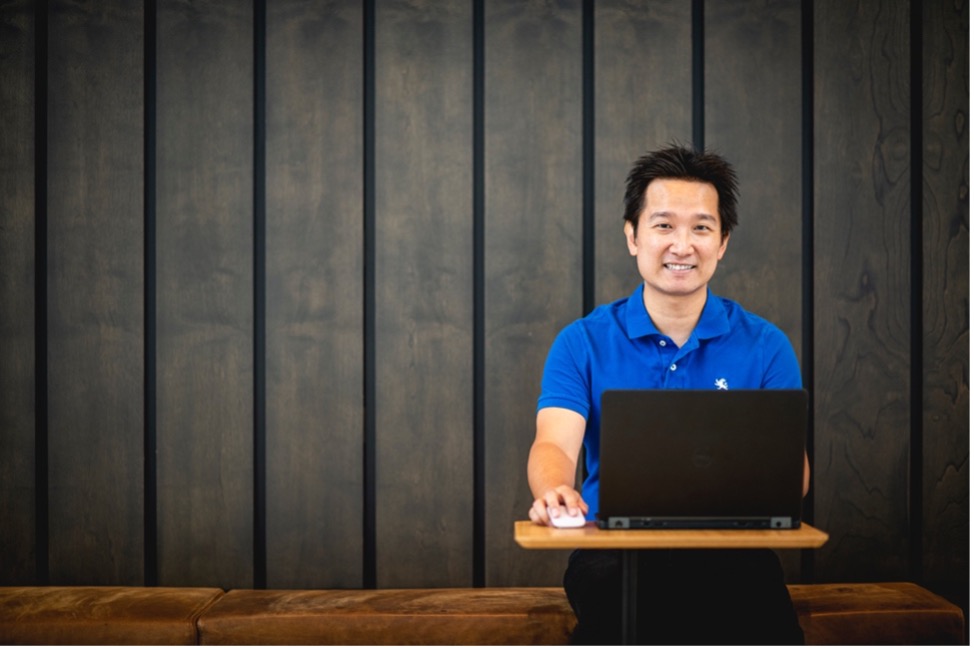Georgia Tech Scheller College of Business Evening MBA student Kevin Chan won second place in the Spring 2021 Capsim Challenge, a biannual international business simulation competition where students have the chance to be named the world’s best at operating a multimillion-dollar simulation company. Chan competed against students from 22 countries across six continents in this virtual competition.
Chan’s first experience with business simulation was in his strategic management MBA class taught by Professor Frank Rothaermel. While in that class, Chan and his classmates developed and executed a winning strategy as a team. He then took that strategy to compete in the Capsim Challenge.
“I’ve spent the past 10 years implementing and designing supply chain products,” Chan said. “I want to pivot into a product management role. The Capsim experience helped me better understand the different aspects of running a business outside of just R&D alone.”
Students produced sensors with specific parameters—performance, size, reliability, selling, and price— in the simulation challenge. They start with five products in each of the five segments. Every year, the segment requirement increases toward higher performance, smaller size, and a cheaper price. The students can upgrade their product to keep pace with the segment. If they choose not to upgrade, the product will lose market share in its segment.
Kevin’s strategy was to introduce three new high-end products and let the existing products drift down the market. He said this strategy is similar to how Apple keeps creating a new flagship iPhone and repositions older models, like the iPhone 8 into iPhone SE, for the lower market.
With only an hour to work on his strategy in each round, Chan said the biggest takeaway he received from this simulation challenge was to have a strategy ready from the beginning. “Having the best product is only half of the equation to success. Good timing and a well-executed strategic plan are at least as important as the products themselves,” Chan said.
Chan credits his winning strategy to the lessons he learned in Professor Rothaermel’s class.
“He mentioned to always pick a strategy and stick with it,” Chan said. “The strategy needs to focus on one thing, and you need to know what your product is. You can’t please everyone."
Chan’s first experience with business simulation was in his strategic management MBA class taught by Professor Frank Rothaermel. While in that class, Chan and his classmates developed and executed a winning strategy as a team. He then took that strategy to compete in the Capsim Challenge.
“I’ve spent the past 10 years implementing and designing supply chain products,” Chan said. “I want to pivot into a product management role. The Capsim experience helped me better understand the different aspects of running a business outside of just R&D alone.”
Students produced sensors with specific parameters—performance, size, reliability, selling, and price— in the simulation challenge. They start with five products in each of the five segments. Every year, the segment requirement increases toward higher performance, smaller size, and a cheaper price. The students can upgrade their product to keep pace with the segment. If they choose not to upgrade, the product will lose market share in its segment.
Kevin’s strategy was to introduce three new high-end products and let the existing products drift down the market. He said this strategy is similar to how Apple keeps creating a new flagship iPhone and repositions older models, like the iPhone 8 into iPhone SE, for the lower market.
With only an hour to work on his strategy in each round, Chan said the biggest takeaway he received from this simulation challenge was to have a strategy ready from the beginning. “Having the best product is only half of the equation to success. Good timing and a well-executed strategic plan are at least as important as the products themselves,” Chan said.
Chan credits his winning strategy to the lessons he learned in Professor Rothaermel’s class.
“He mentioned to always pick a strategy and stick with it,” Chan said. “The strategy needs to focus on one thing, and you need to know what your product is. You can’t please everyone."
